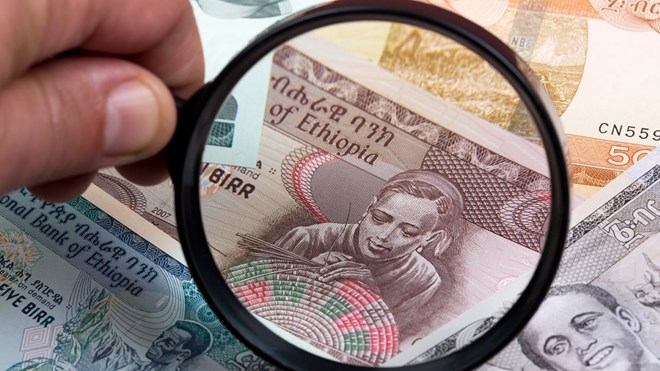
Thursday August 1, 2024
Ethiopia's birr under scrutiny: The land-locked country lost 30% of its value amidst major economic reforms aimed at stabilizing the economy and securing international financial aid.
ADDIS ABABA, Ethiopia (HOL) — Ethiopia's birr lost 30% of its value against the U.S. dollar this week following a major policy shift by the central bank to float the currency. The move is part of broader economic reforms to secure substantial financial aid from international lenders.
advertisements
Prime Minister Abiy Ahmed announced that the new market-based exchange rate regime is necessary to address chronic foreign currency shortages and stimulate private sector investment. The reforms have already resulted in a pledge of $10.7 billion in financing from the International Monetary Fund (IMF) and World Bank, with the IMF approving a $3.4 billion four-year credit facility.advertisements
"The introduction of a competitive, market-based determination of the exchange rate addresses a long-standing distortion within our economy," said Mamo Mihretu, governor of the National Bank of Ethiopia, in a televised address. He added that commercial banks could now buy and sell foreign currencies at negotiated rates, marking a dramatic departure from decades of strict currency controls.While the government hopes these measures will attract foreign investment and stabilize the economy, many Ethiopians are concerned about the immediate impact on their daily lives.
To mitigate inflationary pressures, the government has promised subsidies for essential goods such as fuel and increased salaries for civil servants. However, economic analysts warn that the urban poor, pensioners, and low-income workers will bear the brunt of the devaluation. "The consequences of this exchange rate regime change will take some time to be reflected in the economy," said Abdulmenan Mohammed, an Ethiopian economist based in the UK.
Ethiopia has struggled with economic instability in recent years, exacerbated by a brutal two-year civil war in the northern Tigray region that ended in 2022. The country has about $28 billion in external debt and defaulted on government debt. The IMF's new program is expected to include measures to restructure this debt.
The U.S. embassy in Addis Ababa praised the policy shift as a difficult but necessary step to address macroeconomic distortions. Local banks have expressed relief, as the new regime reduces their reliance on the black market for foreign currency.
Despite these assurances, the immediate fallout includes a sharp rise in the cost of imported goods. Addis Ababa residents report that imported milk powder increased by 400 birr overnight.
The World Bank has approved a $1.5 billion financial package to support Ethiopia's economic reforms, emphasizing the protection of vulnerable populations from the costs of economic adjustment. Maryam Salim, World Bank Ethiopia director, stated, "This operation supports the government of Ethiopia at a critical time in its efforts to accelerate poverty reduction and shift to more inclusive, sustainable, and private sector-led growth."